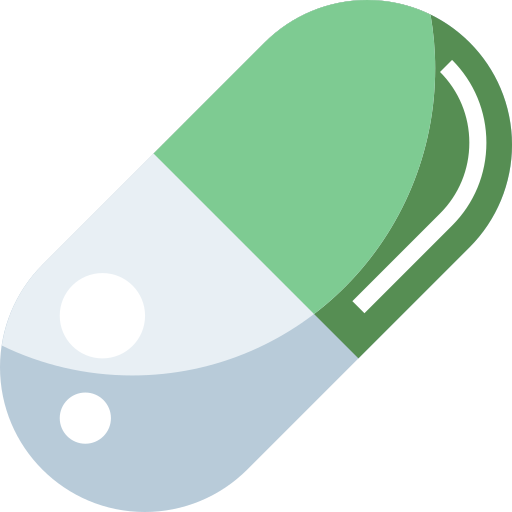
Product Details
Description
Newly Diagnosed Glioblastoma Multiforme: Temozolomide is indicated for the treatment of adult patients with newly diagnosed glioblastoma multiforme concomitantly with radiotherapy and then as maintenance treatment. Refractory Anaplastic Astrocytoma: Temozolomide is indicated for the treatment of adult patients with refractory anaplastic astrocytoma, i.e., patients who have experienced disease progression on a drug regimen containing nitrosourea and procarbazine.
Should be taken on an empty stomach. Take at least 1 hr before meals.
Reduced effectiveness of vaccines and generalised infection may occur in patients immunised with live vaccines. Decreased temozolomide clearance with valproic acid.
Hypersensitivity to dacarbazine. Severe myelosupression. Pregnancy.
Nausea, vomiting, taste perversion, constipation, diarrhoea, abdominal pain, stomatitis, anorexia, headache, fatigue, convulsions, dizziness, memory impairment, impaired concentration, tremors, blurred vision, hearing impairment, speech disorder, rash, infection, oral candidiasis, dyspnoea, coughing, neutropenia, thrombocytopenia, leucopenia, anaemia, hyperglycemia, decreased wt, insomnia, anxiety, alopecia, muscle weakness, urinary incontinence, increased alanine aminotransferase. Rarely, myelodysplastic syndrome and secondary malignancies.
Pregnancy Category D. There is positive evidence of human foetal risk, but the benefits from use in pregnant women may be acceptable despite the risk (e.g., if the drug is needed in a life-threatening situation or for a serious disease for which safer drugs cannot be used or are ineffective). Nursing Mothers: It is not known whether this drug is excreted in human milk. Because many drugs are excreted in human milk and because of the potential for serious adverse reactions in nursing infants and tumorigenicity shown for temozolomide in animal studies, a decision should be made whether to discontinue nursing or to discontinue the drug, taking into account the importance of Temozolomide to the mother.
Severe hepatic and renal impairment. Elderly >70 yr, children. Women of child bearing potential should avoid becoming pregnant during therapy. Males should be advised not to father a child up to 6 mth after treatment and to consider cryoconservation of sperms due to possibility of irreversible infertility. Unknown if distributed into breastmilk, discontinue nursing due to potential risk. May impair ability to drive or operate machinery. Swallow capsules whole with a full glass of water on an empty stomach or at bedtime. Do not take a 2nd dose if capsules are vomited. Monitor CBC wkly during concomitant therapy and on day 22 of each 28 day treatment cycle, followed by wkly blood count until recovery. Hepatitis screening and prophylactic therapy with antiviral agents as clinically indicated to be considered. Prophylaxis for Pneumocystis jiroveci (or Pneumocystis carinii) pneumonia (PCP) needed for all patients receiving concomitant temozolomide and radiation therapy for the 42-day regimen; if patients experience lymphocytopenia during the concomitant phase of therapy, PCP prophylaxis should be continued until recovery from lymphocytopenia. Monitor closely for PCP development in all patients. Anti-emetic prophylaxis recommended.
Pediatric Use: Safety and effectiveness in pediatric patients have not been established. Geriatric Use: Clinical studies of temozolomide did not include sufficient numbers of subjects aged 65 and over to determine whether they responded differently from younger subjects. Other reported clinical experience has not identified differences in responses between the elderly and younger patients. In general, dose selection for an elderly patient should be cautious, reflecting the greater frequency of decreased hepatic, renal, or cardiac function, and of concomitant disease or other drug therapy. Renal Impairment: Caution should be exercised when temozolomide is administered to patients with severe renal impairment Hepatic Impairment: Caution should be exercised when temozolomide is administered to patients with severe hepatic impairment
Doses of 500, 750, 1000, and 1250 mg/m2 (total dose per cycle over 5 days) have been evaluated clinically in patients. Dose-limiting toxicity was hematologic and was reported with any dose but is expected to be more severe at higher doses. An overdose of 2000 mg per day for 5 days was taken by one patient and the adverse reactions reported were pancytopenia, pyrexia, multi-organ failure, and death. There are reports of patients who have taken more than 5 days of treatment (up to 64 days), with adverse reactions reported including bone marrow suppression, which in some cases was severe and prolonged, and infections and resulted in death. In the event of an overdose, hematologic evaluation is needed. Supportive measures should be provided as necessary.
-
Support 24/7
Call us anytime -
100% Safety
Only secure payments